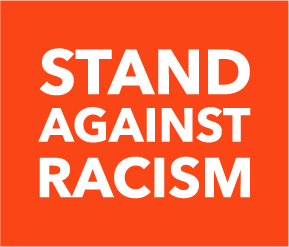It’s shameful that the novel coronavirus 2019 pandemic should be model for human behavior. That is, COVID-19 does not discriminate. But among death, severe disease, and toilet paper depletion, xenophobia and racism too have found their way into how the disease will be remembered. It would seem that such a formidable opponent would provide opportunity for unity, trust, and ultimately – love between people. And though it has, the disease has also shone a harsh light on systemic injustices across communities locally and globally.
The virus has been referred to as the “Chinese virus” or as the “Wuhan Flu” forcing Asian-Americans and Asian immigrants to defend their cultures and nationalities. Gun purchasing rates from these communities increased. Op-eds were written. Not for the first time in this country’s history, anti-Asian rhetoric went main stream again.
Soon, COVID-19 will have a rampant spread to the African continent. In some countries, it’s already arrived. In a twist, African immigrants in China now face their own fears as people turn the subvert the narrative. That this deadly disease is brought by outsiders. That it’s foreign. That it’s of another color. Shifting the blame is easy. It’s also deadly.
So, we looked to the experts. The scientists, doctors, and elected officials. What do we do to protect ourselves? Surely stockpiled frozen food will not save me or those that I love. The advice that followed was mixed. Wear a mask. No don’t. Get a N-95. Just kidding, these must be saved for healthcare workers. And finally – wear any sort of face covering. Act as if you have the virus. This is the current advice from the Centers for Disease Control. But wearing a mask is a privilege. Wearing a bandana is a greater one.
Face coverings inside usually conjure the image of a bank-robber, a thug, a gangster, a criminal. Public images that people of color have run the longest-running PR campaign against. And yet, in communities of color, where COVID-19 is hitting the hardest due to higher rates of pre-existing conditions such as diabetes, heart disease, and obesity, people are afraid to wear masks. Why? Because of the United States’ history of playing with the lives of people of color. Of “hands-up don’t shoot.” Of Trayvon Martin going to 7/11 to buy some snacks. Of Eric Garner’s “I can’t breathe.” Sandra Bland was just trying to drive a car. Because even when innocent, unarmed, and unmasked, there is potential threat. Imagine what it’s like when masked?
It’s all systemic. It’s historical. And it’s always been life or death.

It’s known that COVID-19 will impact communities of color economically at much higher rates. Populations that have had to work harder for longer to see even the horizon of the American dream are seeing it riding off into the sunset a-top a stallion trained for racing. Like Sisyphus, the boulder is back at the bottom of the mountain. Now, more than ever, it is essential to support and uplift communities of color.
Every year, YWCAs across the country unite for our annual Stand Against Racism campaign. Typically, we host events in communities big and small, condemning racism, hatred, and bigotry. We do so to raise awareness, to support marginalized people, and because we know it is the right thing do to. Standing against racism is the work of justice. We mustn’t let the boulder fall.
Here’s how you can join us on our mission to eliminate racism. Sign our pledge to Stand Against Racism and write to your representatives. Listen to our Stand Against Racism episodes of Organize Your Butterflies and share them with your friends and family while socially distancing at home. Finally, engage with us on social media by sharing our graphics and using the hashtag #StandAgainstRacism. As always, we are #StrongerTogether.
By: Sophia Clarke, Communications Associate


